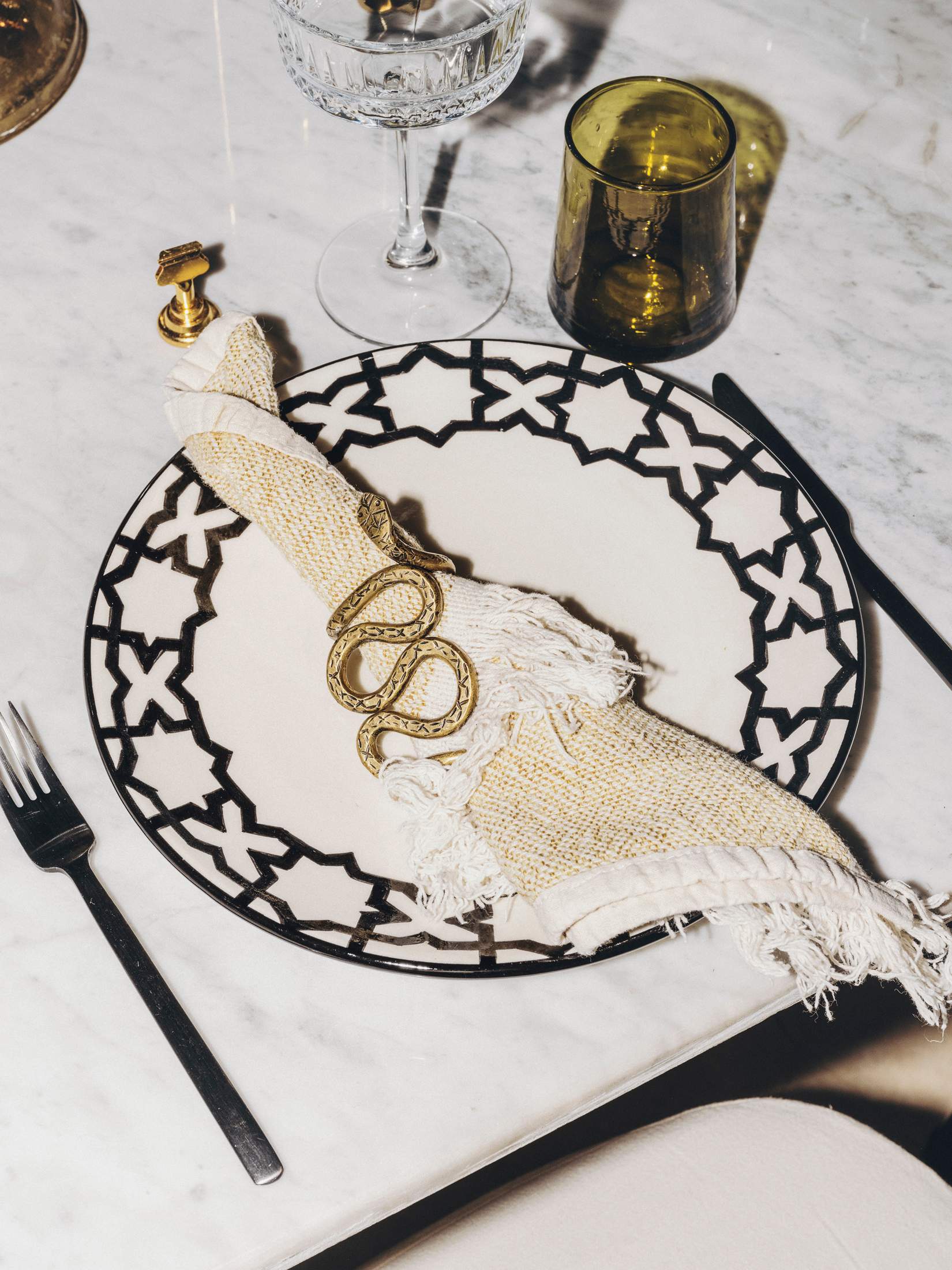Trip: Marrakech / Morocco
Marrakech, Morocco
An intimate party with friends of the newly opened Farasha Farmhouse provides a window into the city’s thriving creative scene.
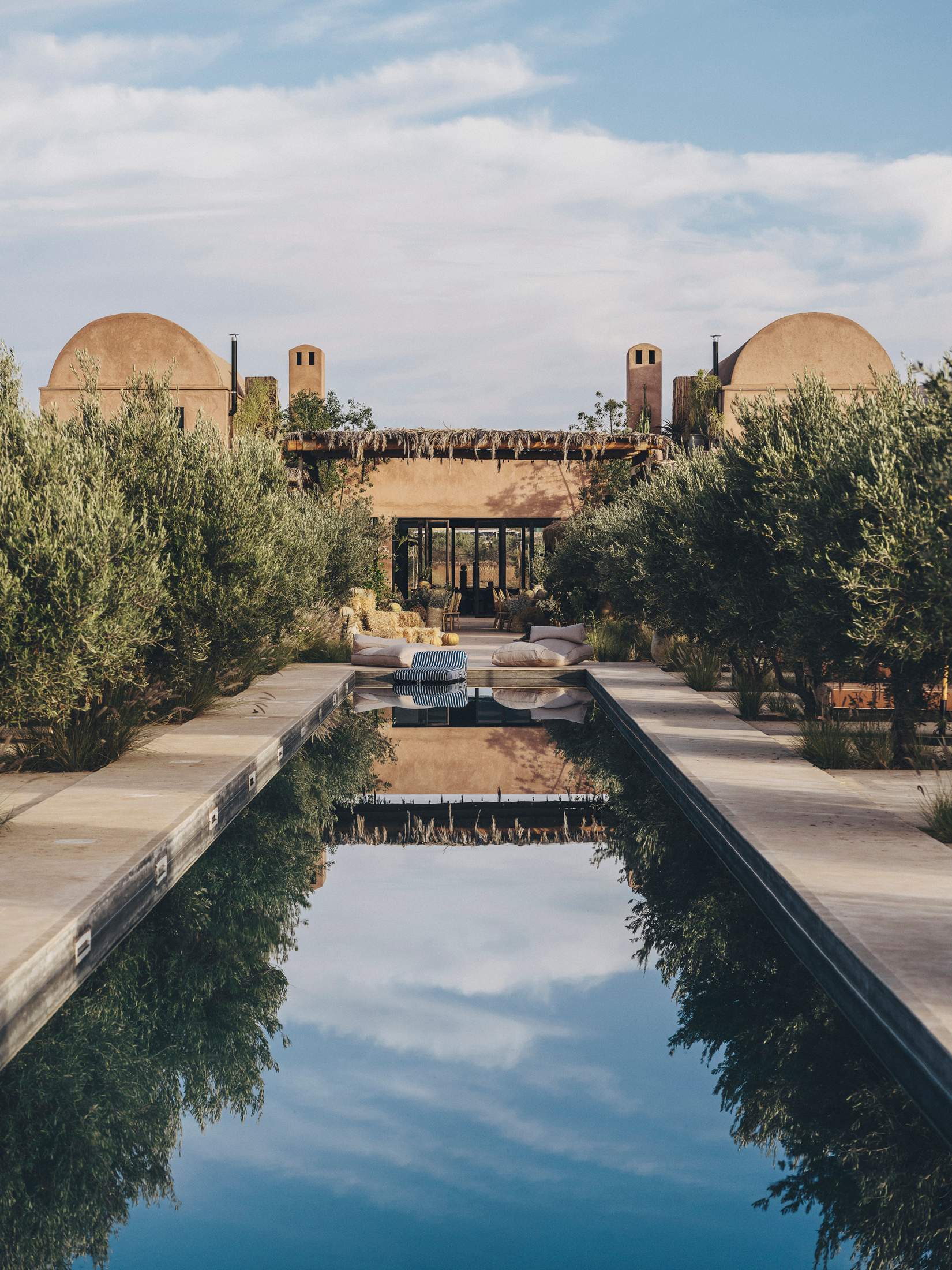
The clock is ticking towards the hour when guests will arrive but dinner-party host Rosena Charmoy is having to correct her courses after a surprise visitor has upended her meticulous run of show. A ginger cat, which appears to have stowed away inside the delivery boxes of tableware, is now weaving between chair legs, distracting staff who are attempting to focus on finalising the table setting. Rosena gently nudges her team back to their tasks. Any production in Marrakech, she tells us, needs to balance some chaos with the occasional burst of levity. Today’s gate-crashing feline might be an easily surmountable blip in pre-party preparations but with some quick finessing to the table’s 20 placements, Rosena shows why she and her husband, Fred, are born entertainers.
Tonight, the couple have lots to celebrate. Their newly opened Farasha Farmhouse is welcoming back friends, colleagues and well-wishers, many of whom helped to bring the venue into existence. The exquisitely appointed hotel is also a canvas of sorts for this tightknit, talented community of artists and artisans currently colouring modern Morocco. While dozens of just-lit candles flicker, guests mass for an aperitif on the patio.
“My lifelong motto is: fail to plan, plan to fail,” says Irish-born Rosena. “I always prepare menus, playlists, seating plans and decor well in advance because it allows us to relax and be with our guests.” She has now switched from a combination of laser-focused and lightning-quick to effortlessly welcoming. Even that charming ginger cat could take some pointers.
For the past 18 years, Rosena and Fred have run Boutique Souk, dreaming up and executing elaborate high-end events, birthday parties and weddings for revellers in and around Marrakech. Their clients include major fashion houses such as Chanel and Dior, as well as a ledger of non-disclosure-agreement-protected personalities who might or might not include finance moguls and eminent entertainers. “Over the years, we have built a giant stage in the desert for a contemporary dance performance and hosted remote five-course dinners for 120 people,” says Rosena. But tonight’s event, she says, is more about gathering friends in gratitude. It’s a family picnic in comparison.
This easy-going air is exactly what the couple envisioned for their newest venture. When Morocco’s borders were closed at the peak of the coronavirus pandemic, Fred and Rosena believed that people’s yearning for connection and sanctuary would return even more strongly after the long period of disconnection. The discovery of late French artist Patrice Arnaud’s run-down former residence in 2021 set a new, more grounded plan into motion.


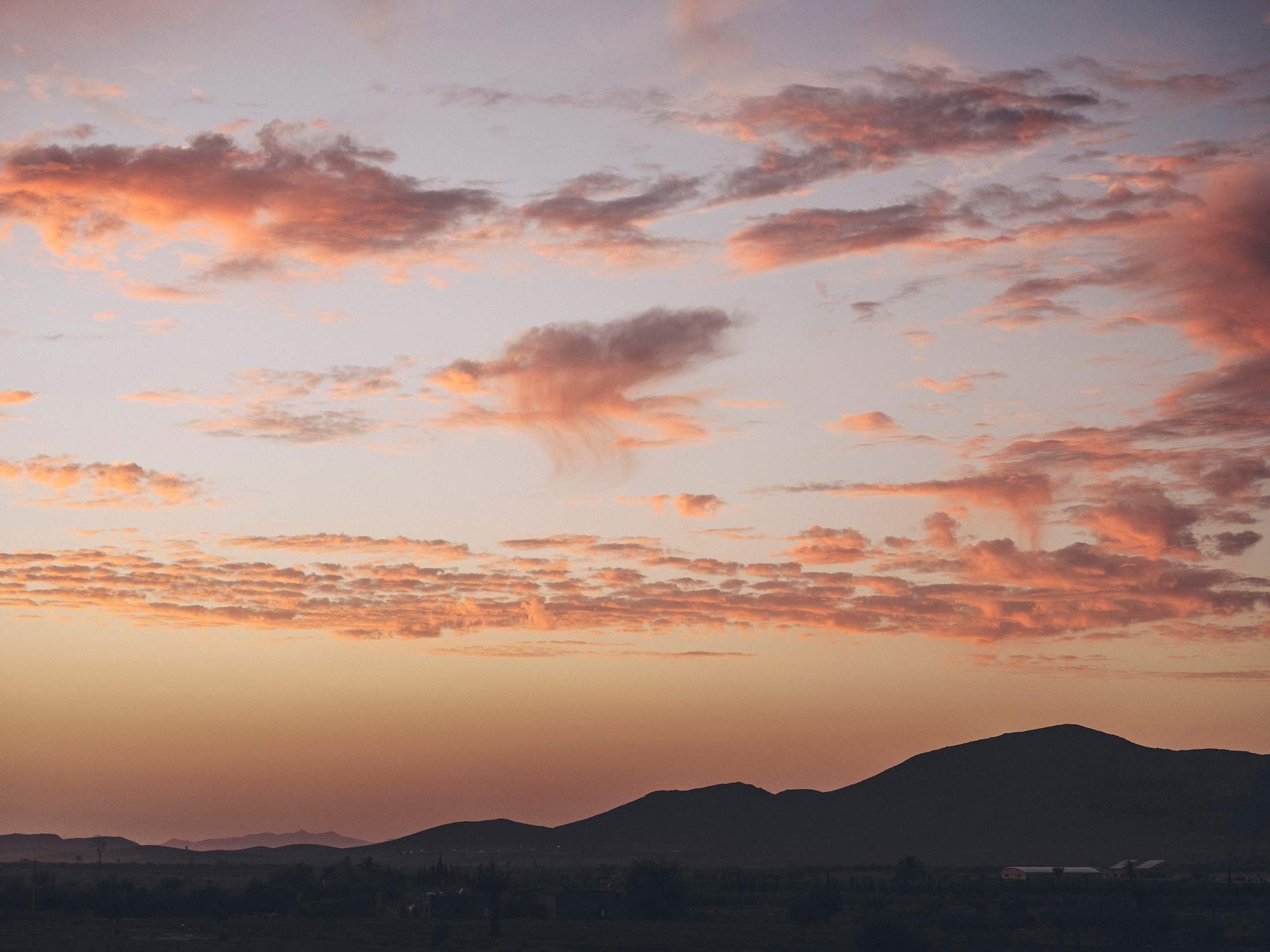
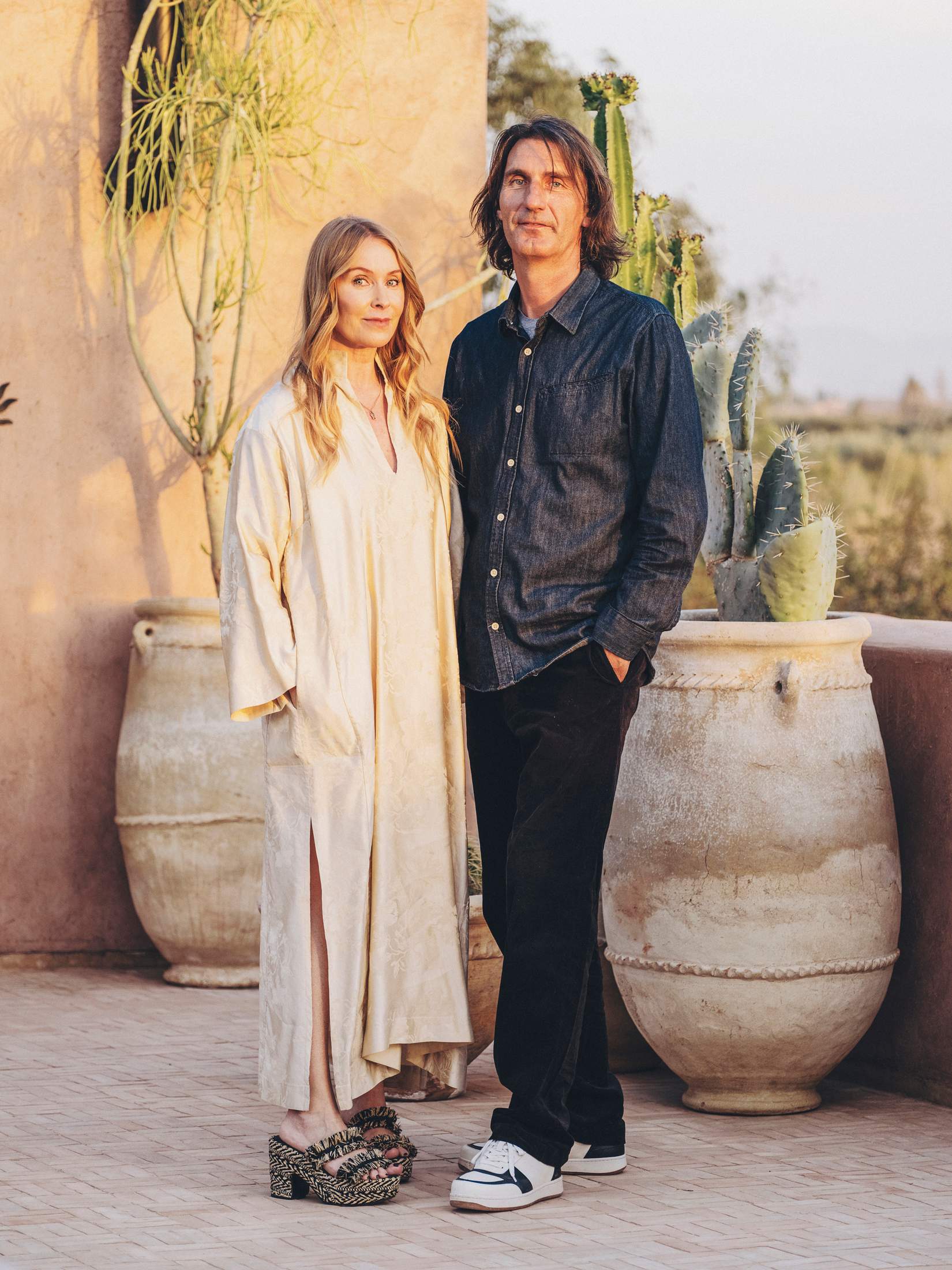
On an open plain between the Atlas and Jbilet mountains, the property’s two front-facing buildings were converted into a four-key lodging. The refurbishment of the second building will add six more suites in late 2024. The opening’s staggered pace reflects the owners’ desire to enjoy the process. Set among a deep-rooted olive grove, the perennial, oasis-like garden was designed by landscape architect Marius Boulesteix, who moved to Marrakech after leaving his career in the Paris fashion industry.
The regenerative farm grows many of the vegetables and herbs used in the kitchen. A 50-metre lap pool is lined with sundecks shaded by crochet parasols. The drought- resistant plants, butterfly-attracting lantanas and winding pathways layered with argan-nut shells, which are soft underfoot, are gentle reminders of the thought and care that have gone into the project.
Back inside, plates bearing the first course of roasted, za’atar-seasoned carrots and feta cream are carried in as the crossfire of conversation continues apace. Tonight’s guests include art collector Fatima Zohra Bennani Bennis, who founded Marrakech’s pioneering mcc Gallery, Moroccan visual artist and architect Idries Karnachi, Maria Derhem, co-founder of sustainable clothing brand Le Cartel Créatif, and champion show jumper Diletta Gigli.
The guest list reflects the engaged creative community that gathers around the Charmoys. Collaborations on events have blossomed into friendships and a strong network that is reshaping Marrakech. “We are very grateful for their ability to throw a damn good party,” says Karnachi with a smile.
The staccato clinking of a spoon on a champagne glass brings the chattering room to silence, as Rosena stands to toast several guests who helped to shape the hotel. Artisan Soufiane Zaytoune, who created the farmhouse’s marble kitchen, stone bathroom basin and uniquely chiselled fireplace, is thanked effusively for his efforts.
As plates of beef tartare spiced with saffron and coriander are delivered to the table, chef consultant Aniss Meski of Marrakech restaurant Cantine Mouton Noir is rightly praised too. “I moved back to Morocco, my birth country, after a long stint in Canada because I felt there was room for our cuisine to break free from traditional tropes,” he tells us after dinner. As well as overseeing Farasha Farmhouse’s menu, he runs the restaurant at the city’s Musée Yves Saint Laurent.

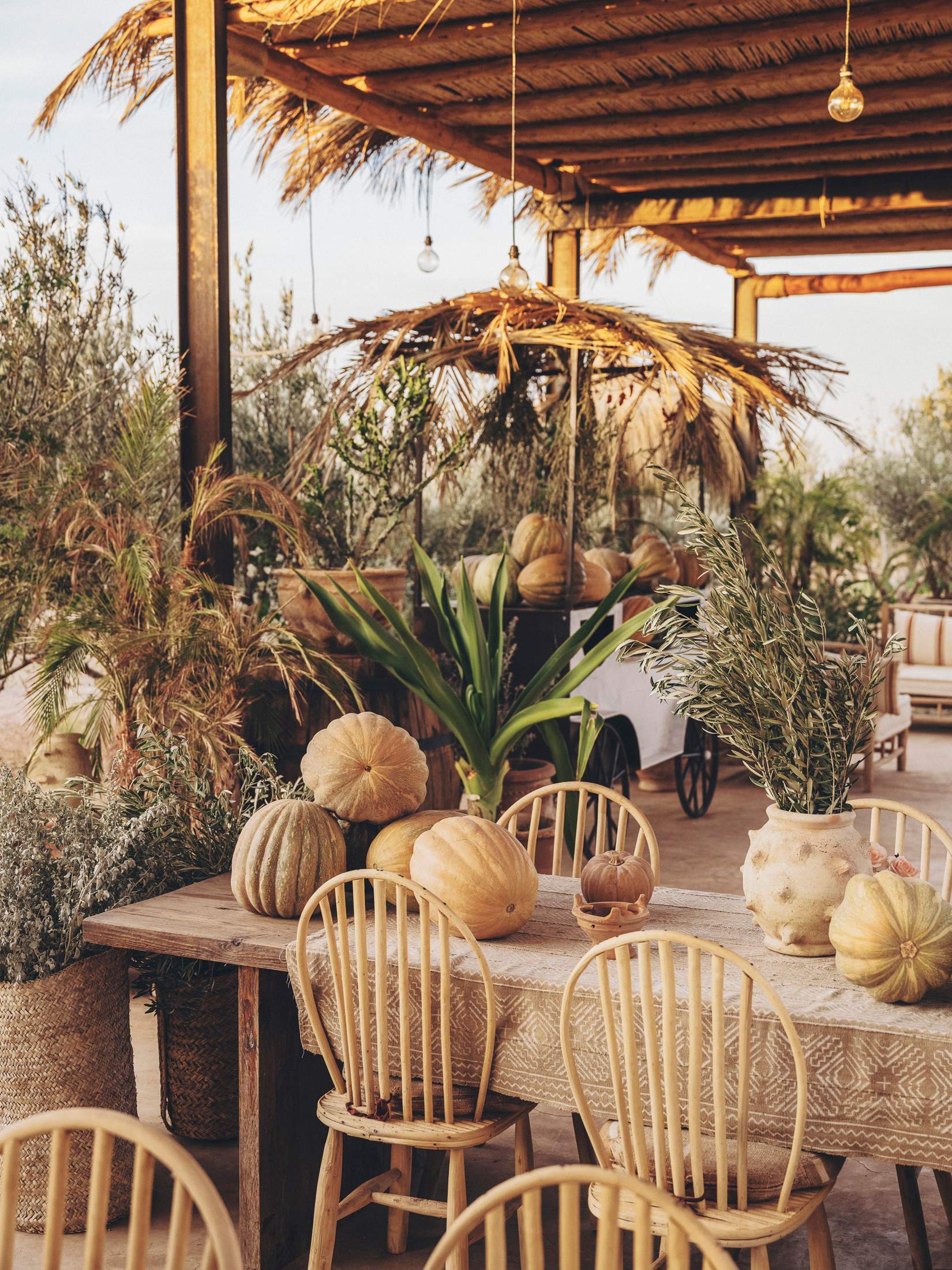
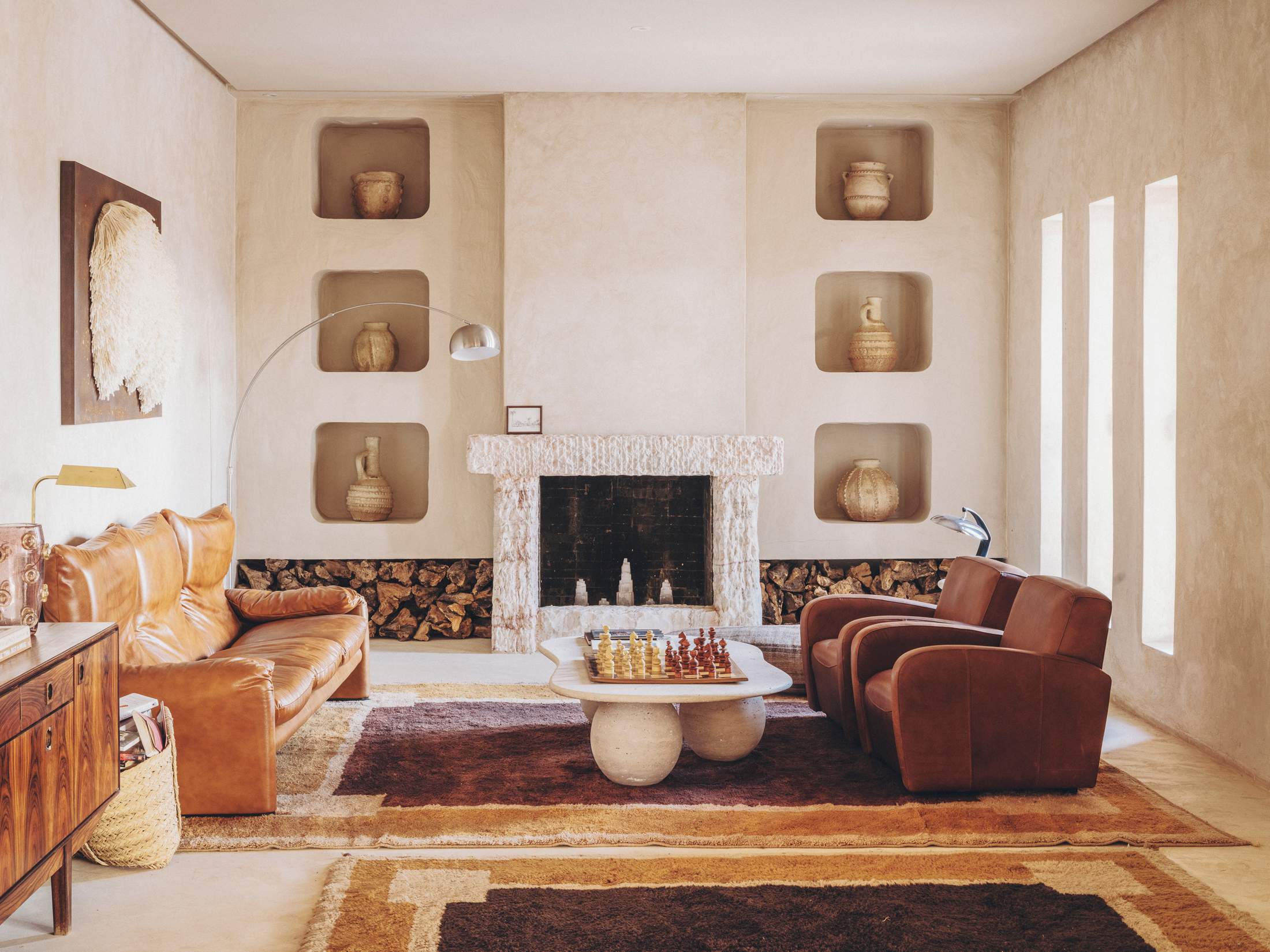
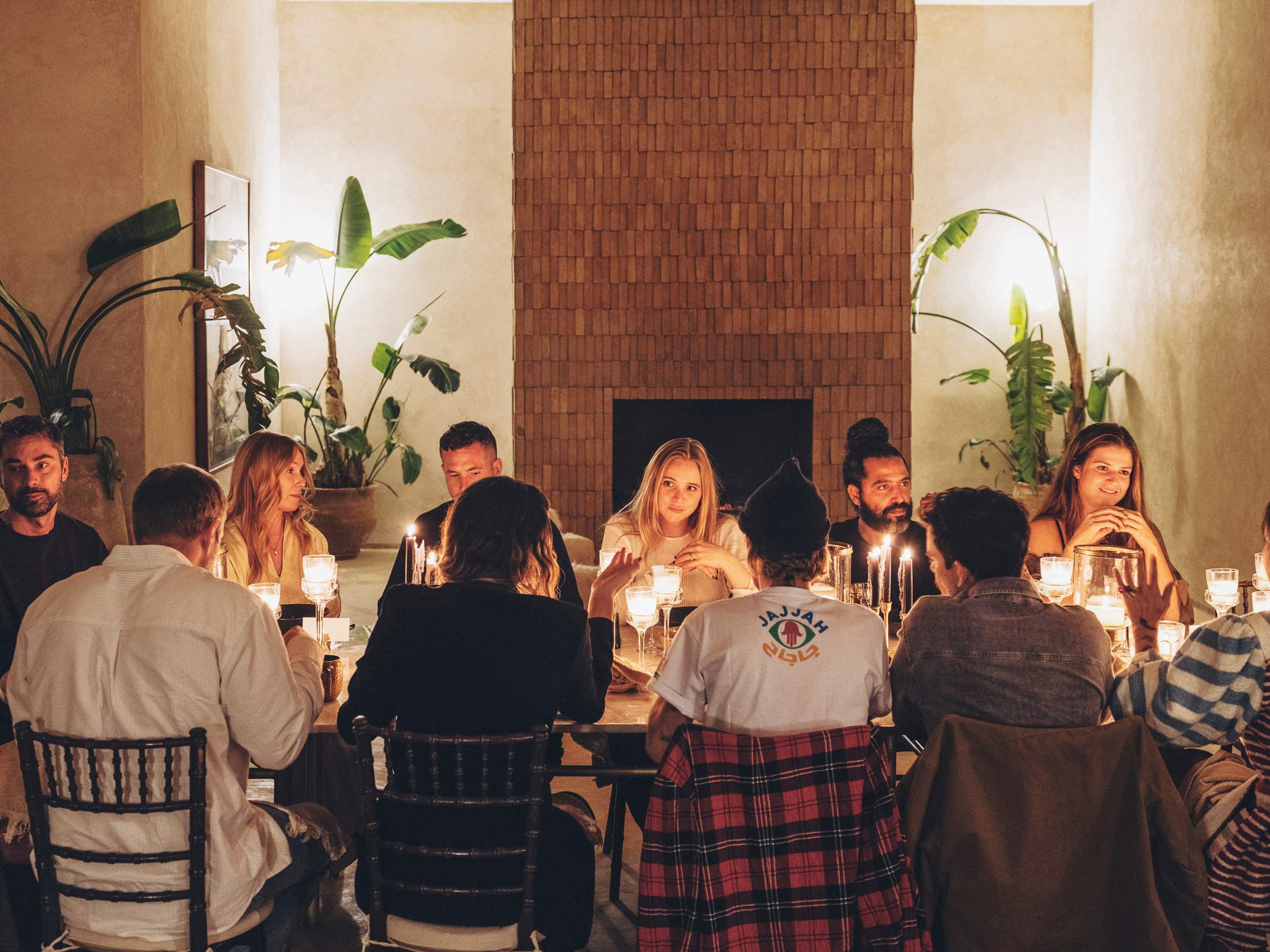
Every inch of the farmhouse has been considered in astonishing detail. The zellige and bejmat tile work and tadelakt limewash walls are adorned with custom handwoven tapestries by Beni Rugs. A wrought-iron orange-juice cart was hand-painted by lrnce studios. The book collection was part of the family estate of US fashion editor Diana Vreeland until it was donated by her son Freck, who served as US ambassador to Morocco.
“We didn’t want to just create a place for temporary enjoyment,” says Fred. “Rather, this is somewhere that nurtures more profound connections. Farasha is our reading of where we see the hospitality industry heading: more meaningful experiences, the blurring of the lines between hospitality, art, music and wellbeing.”
The quietest guest of the night, conceptual artist Amine El Gotaibi, also receives the biggest ovation. This is partially down to well-orchestrated timing: with the pear mousse and miso milk dessert polished off, everyone stands up for a short walking tour of his works, which he has loaned from his studio to exhibit at the farmhouse for an extended period. El Gotaibi’s wife is British-born Amy Thomson, the founder of women’s health technology company Moody. Tonight she is talking guests through her husband’s work. The pair have just returned from London, where El Gotaibi’s ambitious installation “Illuminate the Light” transformed the Somerset House courtyard into a spectacle of smoke and mirrors. At Farasha, the artist’s oversized works of entangled wool and metal offer a backdrop to the exchange of ideas around the dining table.
“A lot of our clients are younger, searching for authenticity, nature and what I call ‘dusty luxury’,” says Rosena. She explains that this means “laidback, comfortable and close to nature” but still imbued with recognisable elements such as favourite cocktails, familiar chefs and preferably a good DJ too.
To stay abreast of their customers’ wish lists, the couple travels a lot, visiting the Balearics, London, Paris and the odd festival such as South by Southwest in Austin, Texas. “When I moved here in 2005, I found my own Irish culture very aligned with Morocco’s generosity and warmth,” says Rosena. “There’s an ease to hospitality here.”
As the flames lick the charred logs in the chimney, the night’s momentum finally begins to slow. The remaining guests have migrated to the sofa for a nightcap. It’s nearly midnight but in Morocco the concept of time is often dismissed almost as a Western abstraction. No one seems to mind that it’s a Monday either. “We created this place to give our careers a sense of purpose,” says Fred before he bids us adieu. “But creating the right place has a magical way of reviving a community’s purpose too.”
Fred & Rosena Charmoy’s three foundations to good entertaining
Mix it up
“Create a group or guestlist of people who will have fun together but who might also end up pursuing an artistic or entrepreneurial endeavour,” says Fred. “Connecting people is at the heart of what we do.”
Get toes tapping
“Good music is a must,” says Rosena. “The right rhythm can help people to relax – or get them dancing on the tables.”
Look after each other
“Guests should always feel well-attended, almost as though they were at a family or good friend’s house not a hotel,” says Rosena. “Food and drink should be abundant and no one should have to wait for the loo.”
How to get there
Farasha Farmhouse is a 40-minute drive from Marrakech Menara Airport on an open plain between the Atlas and Jbilet mountain ranges. It can organise transfers or guests can drive their own cars. Thankfully, most of the journey is a smooth, straight road.
farashafarmhouse.com
